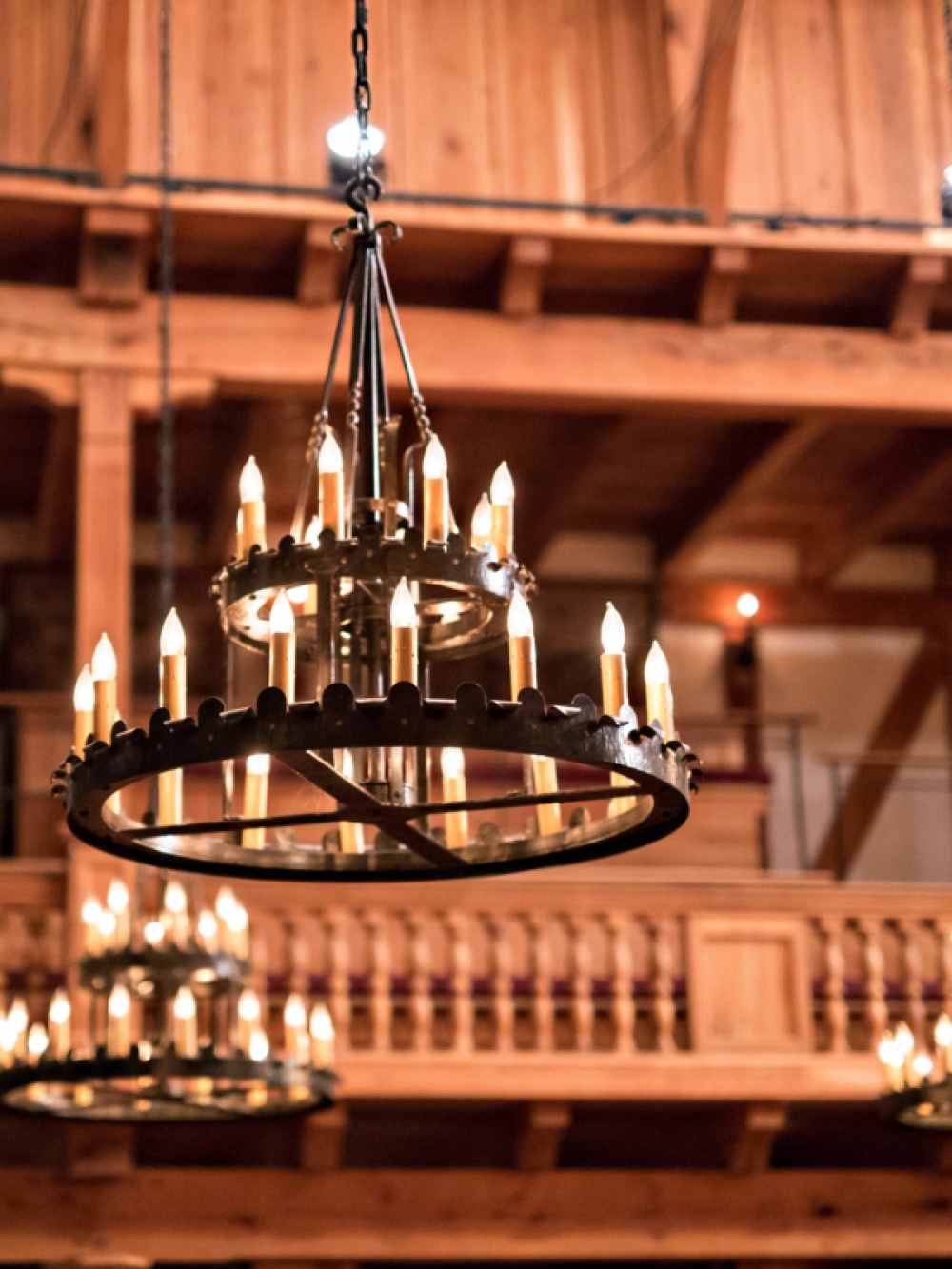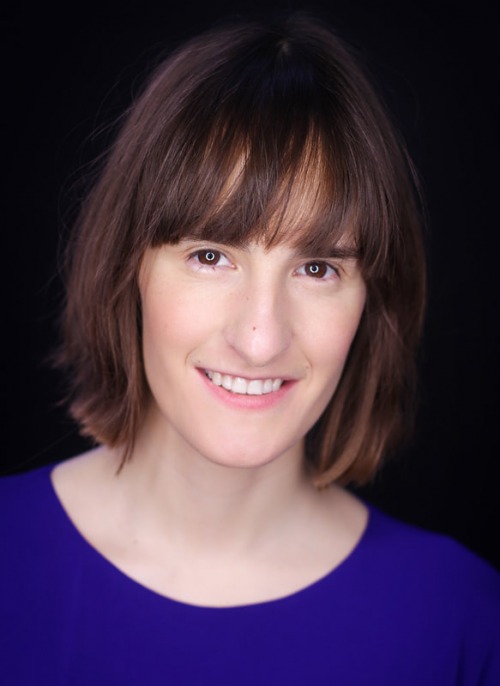The American Shakespeare Center's first British Winner

The 17th century church courts of Corbridge, Northumberland, may seem like a far cry from modern-day Virginia, on the north eastern coast of America, but the two worlds are set to collide next May, thanks to the imagination of Newcastle University lecturer Dr Emma Whipday.
Having submitted her new play, The Defamation of Cecily Lee, to the Virginia-based American Shakespeare Center’s Shakespeare’s New Contemporaries competition at the beginning of the year, Emma hardly expected to walk away with the top honours: $25,000 prize money, travel and housing in Staunton, Virginia, for the play’s rehearsal and development process, and a world premiere production of her work at the ASC’s Blackfriars Playhouse. But that’s exactly what she’s done.
‘I was in quite an unusual position, because I’d already had a couple of my plays performed at the Blackfriars Playhouse,’ Emma explains. ‘I’d sent in a play I’d written back in 2015 called Shakespeare’s Sister, and the ASC liked it so much they staged it – that was actually my first professional production. Then they commissioned a couple of Jane Austen adaptations from me, so I had this ongoing relationship with them, but I’d imagined that once the Shakespeare’s New Contemporaries project started, they’d get all these new, cool, prize-winning playwrights and I wouldn’t get to work with them anymore!
‘I just thought I’d have a go anyway and send a play in on the off-chance. I thought that, at the very least, I might have to try for quite a few years to see how my luck played out. But I was really pleased that it happened so quickly. It was also nice that it was an anonymous reading process, so it’s great to know that they liked the play on its own merit.’
Established in 2017, the ASC’s Shakespeare’s New Contemporaries competition is an industry-changing undertaking, fuelled by the incentive of discovering, developing, and producing a new canon of 38 plays by encouraging modern playwrights to compose original works that are inspired by, and in conversation with, Shakespeare’s classics – and in keeping with his staging conditions. Every year, two winners are chosen through an anonymous, multi-tiered reading process, finally leading them to see their play performed in the Blackfriars Playhouse: a recreation of the only indoor theatre ever used by Shakespeare and his company in the 17th century.
Releasing a choice of four titles from Shakespeare’s canon for writers to respond to in the competition – this year: Henry IV, Part 2; Othello; A Midsummer Night’s Dream; and Cymbeline – the ASC then had to sift through a pool of more than 150 scripts before they selected Emma’s, alongside Anchuli Felicia King’s Keene, as their 2019 winners. But while the benefits of the top prize are obvious, by being based in Newcastle, Emma wasn’t exactly applying to a contest on her doorstep.
‘I have sent lots of things to British theatres, but what’s interesting is that, in general, there’s a current emphasis on speaking to contemporary issues,’ says Emma. ‘I like to write in period, and the ASC really welcomes that. They also have a resident company of actors, which means you can write for a much bigger cast than in most other theatres.
‘If it’s a very contemporary issue that’s being staged in front of us – Brexit, or something – then emotions are so high that it makes it difficult for audiences to step outside it. Whereas when you set things in the past, audiences tend to feel a bit more separate from the action and can look at it with more of a critical eye. So I suppose rather than having modern-dress Shakespeare as a way of making us think about the links with our society, having period Shakespeare that says, “look at how we’re still similar”, is just a way of doing it backwards.’
A response to Shakespeare’s Cymbeline – believed to be one of Shakespeare’s final plays, telling a story of deceit, pursuit and seduction in Ancient Britain – The Defamation of Cecily Lee is set in 1611, when scandal rocks the Northumberland village of Corbridge as maidservant Cecily Lee is accused of committing adultery with her former master. Hauled in front of the church court, she is forced to tell her side of the story, but will her voice be heard over her male contemporaries?
‘In those days, anything that was seen as being against the religion of the time – committing adultery, having children out of wedlock, slandering your neighbour – would have been pulled up in front of the church courts,’ explains Emma. ‘I’d seen a church court record from the period of a woman called Cecily Lee who had been accused of adultery, but she said she was raped, so it was her word against the word of the man who accused her. That seemed to resonate with many things that are happening in our culture at the moment, around the idea of whether we take seriously the voices of women, particularly in these kinds of situations.
‘In Shakespeare’s Cymbeline, there’s a scene that takes place in a bedchamber, where a man called Jachimo spies on a married woman called Imogen as she sleeps. He sees details of her body as she’s undressing, and then uses those details to convince her husband that she’s committed adultery with him. I felt that was a really interesting narrative, because he hadn’t actually raped her, but the damage to her reputation caused by his voyeurism was sexually-motivated violence of a different nature. That speaks to a number of issues in contemporary society, like the question of whether the paparazzi taking a photo up a celebrity’s skirt is sexual assault, for example. Is voyeurism the same as assault? So I put those two main questions together in The Defamation of Cecily Lee.’
Originally from the North East, Emma studied English Language and Literature at Oxford as an undergraduate before studying for an MA in English: Shakespeare in History and a PhD at UCL. Before assuming her current post at Newcastle University, she taught at Shakespeare's Globe, UCL, King’s College London, the Royal Central School of Speech and Drama, and Brasenose College, Oxford, and has published on Elizabethan true crimes, domestic tragedy, and performance practice as research. Balancing scriptwriting with her duties as an academic, Emma has not only returned home in body but also in mind with her latest work.
‘My mum had recently moved from Tynemouth to Corbridge, so I was spending a lot of time in the village and it seemed like such an evocative place in which to set the play,’ Emma reasons. ‘Cymbeline was set in Ancient Britain when the Romans were here, so I thought that being so near Hadrian’s Wall was a gift in terms of having that reference.
‘To link it even more to Cymbeline, I made the main male character (who is the accused rapist) a rich and powerful gentleman who can read and write, unlike many of his contemporaries – including, importantly, Cecily Lee – and who receives copies of the plays that are being performed in London to read. He actually receives a copy of Cymbeline in the play, and the question is raised as to whether reading that play actually inspired him because of the scene with Jachimo in the bedchamber. Because, essentially, what Shakespeare is doing in Cymbeline is criticising the versions of toxic masculinity that existed in Jacobean England, but I wanted to use it as a way of Shakespeare potentially leading my character astray. Does the telling of stories make those stories come to life in some way? And is that comparable to today, particularly with regards to social media?’
While she may largely write in period, Emma’s engagement with current cultural conversations remains just as strong as any of her contemporaries, seeing as it’s the origins of modern-day cultural concepts in the period that first sparked her interest in Renaissance literature.
‘Until I studied Renaissance literature, I’d always liked Victorian literature and sensation fiction,’ says Emma. ‘But there’s something about the Renaissance period. It’s a time of such turmoil in that social mobility is suddenly starting to be a concept, the feudal medieval society is breaking down, people are generally having more opportunities and capitalism is becoming more widespread.
‘Also, privacy is starting to become a real concept, so people are having an expectation, for the first time, of having private spaces away from the household where they can be themselves. It’s a period when people started to think of themselves as individuals, with individual dreams and destinies. I think all that change and anxiety creates such exciting literature, where language is grappling in a really dynamic way with what’s going on. And apart from anything, I love the plays of Shakespeare. The extent to which they’re not only still a part of, but a dominant form within our culture is really attractive to me.’
Currently working on the first redraft of The Defamation of Cecily Lee after consultations with the ASC’s Artistic Director and Literary Manager, Emma will fly out to Virginia in January for a week of workshopping – culminating in the first staged reading of the play – so she can see how her words will work in performance. She will then fly out again in April for five weeks of rehearsals, ahead of the play’s premiere at the Blackfriars Playhouse on 9th May. Returning to Newcastle the following day to resume her lecturing duties, Emma will have to keep abreast of audience reactions to her work from across the Atlantic as it runs in repertory with the other plays performed by the ASC (one of which will be Cymbeline itself), until the end of May. The question we were most keen to have answered after all of this, though: will there be any scope to see The Defamation of Cecily Lee performed in the North East?
‘I would love it to be performed in England!’ smiles Emma. ‘I’m in very early conversations with a couple of theatres, so I’m just waiting to hear what they think. I’ve only been professionally produced in the US – I’ve had drama school productions in the UK, but it’s really weird not to have had a professional production over here yet. And being a relatively new playwright, who writes plays for a large (and, therefore, expensive) cast, means it’s just about getting someone to take a risk. But I would love it to be performed here, especially in the North East where it belongs. Fingers crossed!’





